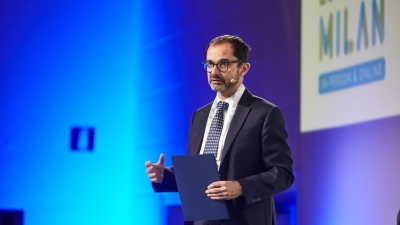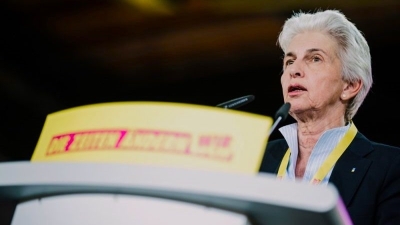Bulgarians exposed to rare diseases health risks by bureaucracy

Bulgaria’s lack of a comprehensive strategy for rare diseases now poses a serious risk to patient health. Administrative obstacles and insufficient screening programmes have left Bulgarians with rare diseases diagnosed late, or not at all, and fewer orphan drugs are available to Sofia compared to the EU average.
According to data presented by the Association of Research Pharmaceutical Manufacturers in Bulgaria (ARPharM) for Rare Disease Day 2024, between 2018 and 2021, 61 orphan drugs for the treatment of rare diseases were registered in the EU. Bulgaria offers its citizens only 11 of them. This is well below the EU average (24 drugs) and far behind leaders Germany (55 drugs on average) and Italy (50 drugs).
“Special attention should be paid to improving screening and diagnosis of rare diseases,” the deputy chairman of the parliamentary committee on health care, Dzhevdet Chakarov (DPS, ALDE), said in an interview with Euractiv. Chakarov insists on the removal of administrative obstacles for rare disease diagnosis.
Access to orphan drugs is a slow process in Bulgaria, it takes a medicine nearly two and a half years after its authorisation for use to reach patients. The average time to receive rare disease medicines in the EU is 548 days after authorisation, while the countries with the fastest access are Germany (45 days) and Austria (99 days).
The Bulgarian National Health Insurance Fund provides a partial solution for patients under the age of 18 with rare diseases. Still, after reaching adulthood, many of them cannot continue their therapy regime because rare drugs are not available to adults in Bulgaria.
Difficulties follow patients and their families along their journey, as they are forced to pay for medicines out of their own pockets, which is sometimes overwhelming.
Diagnostic odyssey
“In Bulgaria, specialised centres for the diagnosis and treatment of rare diseases are few, not well known or difficult to access. To prove a certain rare diagnosis, many tests are needed, including expensive genetic ones. Access to them is very difficult, and patients and their families are forced to pay for them with their own funds, which is sometimes prohibitive,” says Chakarov.
Only 200 rare diseases have been registered in Bulgaria out of over 6,000 known, and due to the country’s lack of registries, it is difficult to say what the actual number of rare disease patients is.
Because of the lack of sufficient screening programs and late diagnosis, it is assumed that many patients in Bulgaria are suffering from a rare disease without knowing it yet. Currently, mass neonatal screening in newborns includes only 3 three rare diseases: phenylketonuria, adrenocortical hyperplasia and congenital hypothyroidism.
It is estimated that rare diseases affect more than 350,000 Bulgarians, corresponding to 6% of the country’s population.
One way that screening and diagnosis can be improved, as Chakarov suggests, is by allowing general practitioners to prescribe the first tests in case of suspicion of a rare disease and not wait for a specialist’s referral. This would be expected to speed up the diagnosis process.
“Bulgaria should create a registry of rare diseases and improve the awareness of patients about diseases passed on genetically from parents to children,” the MP says.
Urgent plan is needed
Healthcare stakeholders say Bulgaria urgently needs to update its health investment strategy. The National Health Strategy expired four years ago, and the National Rare Disease Treatment Plan was 11 years ago.
Bulgarian patient organisations issued a manifesto on 29 February, urging politicians at the national and European level to prioritise actions that help people with rare diseases within their political programs for the European elections.
They insist on measures for early, rapid, and accurate diagnosis, equal access to highly specialised healthcare, timely access to innovative therapies, and comprehensive care throughout life.
The European Commission claims that this is precisely the aim of the new EU pharma legislation.
According to Chakarov, Bulgaria can change legislation to ensure better access to orphan drugs for Bulgarian patients and better cooperation with other EU countries that have advanced in the diagnosis and treatment of rare diseases.
[By Krasen Nikolov, Antonia Kotseva, Edited by Vasiliki Angouridi, Brian Maguire, Euractiv’s Advocacy lab]
Read more with Euractiv




